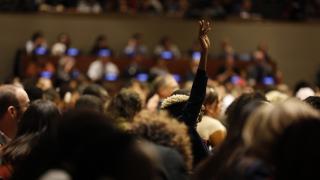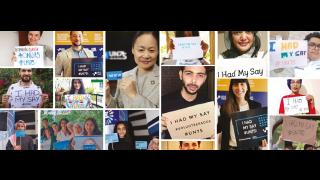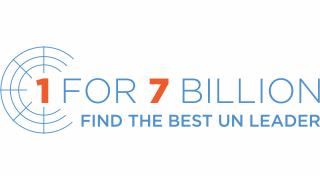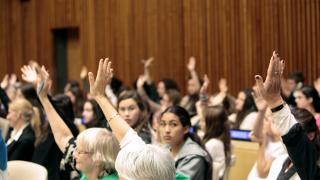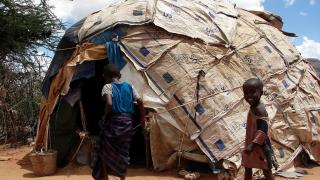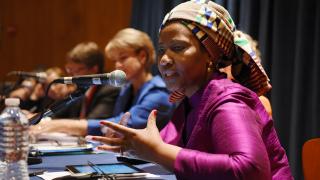
Melina Lito, Program Officer, Equality Now
As an international human rights organisation working to protect the rights of women and girls, Equality Now first launched its campaign for a woman Secretary-General (SG) about 20 years ago. Concerned that in the 70-year history of the UN there still has not been a woman Secretary-General, the organisation renewed this campaign in 2015, noting the many qualified female candidates who could be appointed to the position and the need for a transparent selection process.
The campaign was also grounded on the underrepresentation of women within the UN itself. For the past decade, according to UN Women, only 24.6 per cent of the highest positions at the Organisation have been filled by women. Yet in 1995, at the UN Fourth World Conference on Women in Beijing, 189 governments called for the development of “mechanisms to nominate women candidates for appointment to senior posts in the United Nations”. The year 2000 was set as the target date for “overall gender equality, particularly at the Professional level and above”.
While we were disappointed that a woman was not selected in the end, we encourage the incoming Secretary-General to become an unswerving supporter of a feminist agenda, including by ensuring gender parity among staff and prioritising the prevention of violence and discrimination against women and girls around the world. Along these lines, civil society organisations released a statement proposing minimum steps for Mr Guterres’ first 100 days towards what we think should be his feminist agenda.
At its heart, the declaration makes the case for gender parity across the UN system, calling on the Secretary-General to:
- commit to establishing gender parity among his staff and across the Secretariat, i.e. in the Senior Management Group, in the members of the Policy Committee and in the members of the Chief Executives Board for Coordination (CEB).
- fulfil the commitment made at the World Humanitarian Summit in May 2016 by the UN Deputy Secretary-General to ramp up action on gender equality by increasing the percentage of women at all levels in the United Nations, seeking to surpass 40 per cent by 2020 and achieve 50 per cent by 2030.
- put in place a plan, timeline, budget and accountability mechanism for all senior leaders for achieving gender parity in senior appointments across the entire UN.
The statement further highlights the need to strengthen financing for gender equality and improved coordination through UN Women, ensuring that the agency is informed and engaged in decision-making processes across the UN’s activities.
As the SG takes office, the need for UN leadership on women’s rights is a must. This includes the improvements needed to incorporate better civil society voices working on gender issues, including in the highest policy forums. But, at a time when the political pushback against women’s rights will only increase, supporting women’s civil society voices also includes the UN showing leadership with member states and their commitments to champion these issues within the Sustainable Development Goals and existing UN human rights frameworks.
About the author
Melina Lito is a Program Officer with Equality Now. She is an international human rights lawyer with experience in international security and justice and US immigration law.
Photo: UN Women Executive Director Phumzile Mlambo-Ngcuka speaks at a high-level panel at the 59th Session of the Commission on the Status of Women. Credit: UN Women

